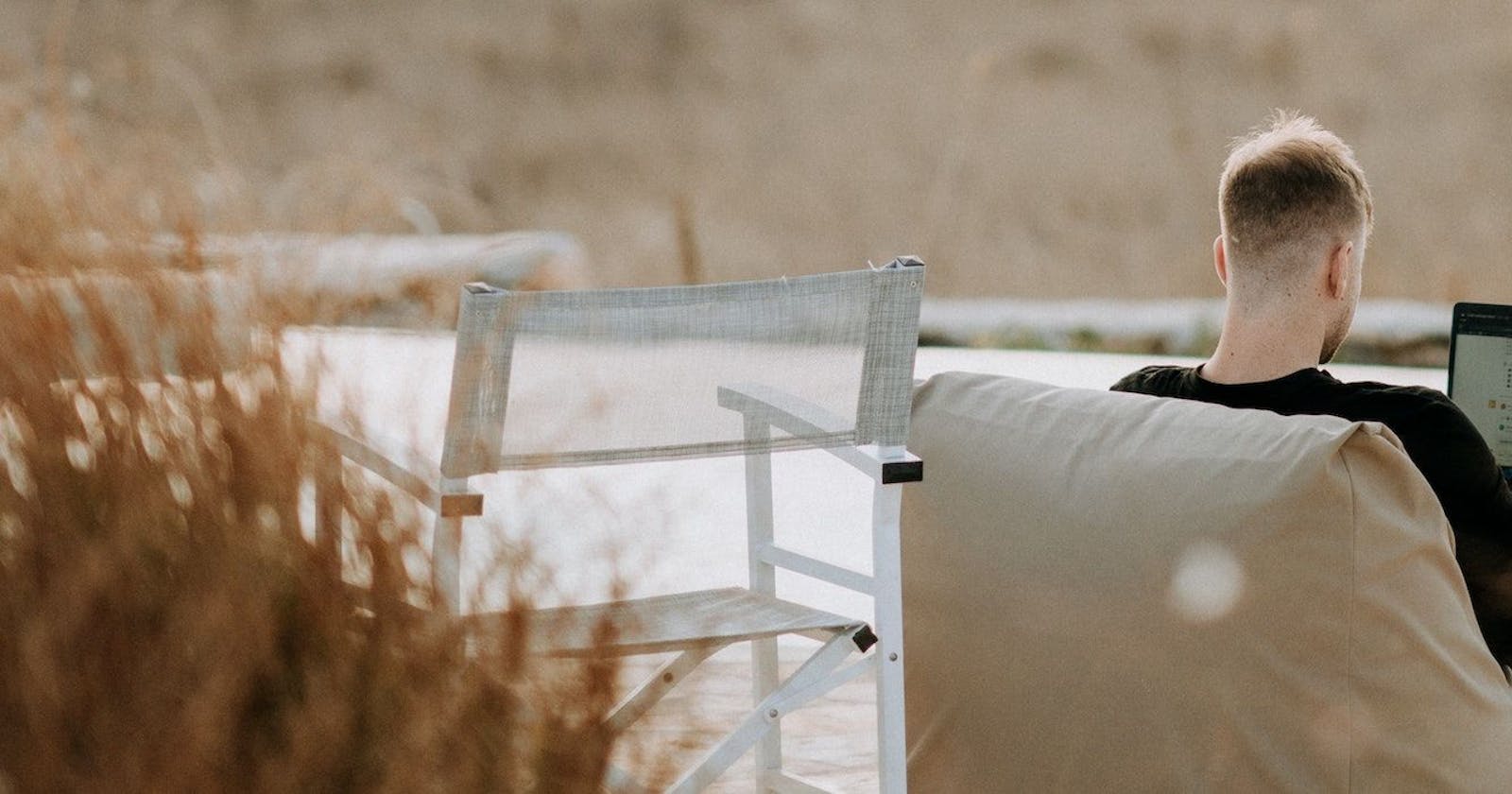Part 2 of a [TBC] part series on planning how to travel the world with your family.
In August 2021 (all being safe to do so) my family and I will travel the world for a year, one big part of this trip will be working. I wanted to share some approaches and research I have done about how I plan to do this.
Audio Version
You can read the article below or listen to the audio version via my podcast or subscribe here.
Travelling for a year with my family opens up the question of working as you travel. My intention when we started to plan this trip (4 years ago) was to get up at 5 am and work until 10 am for 5-6 days a week. This would give me 25-30 hours a week of work time enough to hold down a job/run a business.
Over the last few years I have slowly but surely manoeuvred things towards this outcome. My mobile app agency began focusing on longer-term contracts and two years ago we went to full remote working, once our office lease expired.
Things were lining up and then I spoke to a good friend who has been remote working whilst travelling around Europe in a camper van for the last two years. He proposed the idea of "what if you didn't work for a year?".
"Brain melt, thanks Sam :)"
Though I know what I am like, I am very fortunate to love what I do for a job and have the issue of it being all-consuming at times (self-inflicted). , The whole point of making this trip was to spend more quality time with my family. So when the children want to play in the pool I am there before they are, versus the normal family holiday "you go down, I will be there in 30 minutes, I am just finishing this off".
Having run my business for the last eight years, I cannot remember the last time I took a break; yes, we have had holidays but have I ever turned off properly and for this long. After some family conversations, a very complex Google sheet, the answer was yes.
So the decision was made to not work in a scheduled way for the year even if that meant adjusting the trip's quality level. Therefore my agency business would go on hiatus for a year; a mix of luck and forward planning resulted in this being received amazingly by the team and our clients.
Now, what will I do for a year?
obviously I can't actually be completely off, I'm not altering my DNA.
I have broken it down into what I enjoy doing, what I can do within a fixed timeframe or is async with no immediate deadline, So I can therefore do it when it fits in with our family time. Let me break down how I see myself spending my work time when we are away.
- Interview tech businesses
- Work on product
- Training .NET development teams
- Ad-hoc consultancy
As we plan to visit over twenty countries (fingers crossed), there will be a lot of cool and exciting technology to see. I am creating a podcast/video series/youtube (not 100% on the format yet) where I showcase how technology is being used in different countries and assumingly in different ways than we do in the UK. This will be called "Finding the Gaps", a weekly show/episode, which I anticipate will take me 16 hours per month (circa 200 hours total) to film and edit four shows a month.
At Rarely Impossible (my mobile app agency) in 2020 we built voiceOK a way to back up your voice and memories of loved ones for future generations. I will continue the work we have already done, adding new features, supporting different languages and cultures as we travel but I will be getting first-hand feedback whilst we are in these countries. As this is my product I can work on it whenever and take a BaseCamp approach to feature releases and say it will be released when it is released.
This week I will be "launching" a training program for .NET developers called LearnXamarin.dev , which is currently delivered remotely. Although when the world opens back up I could return to delivering this in person, it is a fixed three-day engagement so it is easy to schedule. I am aiming to deliver a maximum of six of these during the year away, that is around 130 hours in total.
Finally, if ad-hoc consultancy work comes up (under two weeks of work), I can bunker down and get it done when we are in a country for a more extended period. We will be visiting some countries where we have family or friends so taking on work at this point means my family aren't having to "get on" without me. This would be only for existing relationships, so there are familiarities of the code/team/end goal. I imagine this may come to 140 hours in total during the year.
If you add the hours together that is 470 hours, 40 days (at 12 hour days) out of 365, just over 10% of our days away.
The above may seem like a lot and doesn't include working on the voiceOK project. The key thing is these are options and all things I can do anywhere in the world without having to utter the phrases "ok children; I will be there in a minute", "errm give me 10 minutes". This hopefully might mean I even go a few days without turning my phone on.
Connectivity
If you're from the USA, Google Fi would be the answer as it offers incredible roaming services. If you are in the UK, then the best option I can currently find is Three .
Three provide an unlimited data package for travel, but if you read the small print the international roaming is capped at 12GB per month (£13 per month). There are rules if you are away for more than two months which may result in your abroad service being disabled. I need to speak with them to find out if being away for a year will fly (I imagine not) as their roaming service works in 71 countries and over 70% of the places we intend to visit.
Outside of us using a UK provider such as Three we can purchase a local SIM at the airport typically to use during our stay or default to WiFi at hotels or coffee shops.
Office Environment
When you are working, where do you work? Travelling with two children means adjusting to our typical day where the children are in bed early evening so, in a shared room or a tent then the lights are off and a bathroom isn't the location for a video call.
This therefore means doing a bit of prep before we get to a country by checking the accommodation, is there a space to work? A different room if an Airbnb place, a hotel lobby with chairs or a coffee shop that stays open late or opens early. Is there a hot-desking WeWork style location available for a few hours or an afternoon. At worst a sofa, bed or floor with noise-cancelling headphones. The key will be letting the trip decide the work time rather than the other way around.
VPNs
I have been testing different VPNs over the last year to see which works the best for speed, security and Netflix ;) Express VPN has been the clear winner, with NordVPN a close second. Express VPN's only downside is that you can't get a fixed IP add-on (NordVPN can, though the setup process is convoluted). Why would you want a static IP for a VPN? You may be working with internal systems that have IP restrictions set.
Power
Keeping laptops, tablets, phones, and general gadgets charged for work or filming means international plugs and power packs. I luckily have a USB-C powered (though slowly) computer, and with two power packs ( 25k mAh with 30W output ), I can get through an eight-hour coding session or charge three cameras if filming without a power socket.
I have also invested in my media setup with an HD Logitech webcam, wireless microphone, mini lighting and worked out a multi-angle camera view for doing interviews (thanks to Eddie and Stewart for the advice).
The Backup Plan
So you may be aware the world is going through a pandemic at the moment, we have been planning this trip for many years and the world is now a very different place to when we started. Still, we have a window of opportunity and although it would have been great to make this trip when a global pandemic wasn't going on, it is what it is. So we need a backup plan.
We want to leave the UK this August, our backup plan is to live in a travel hub country and see where the world is in six months (circa Feb 2022). Here is where the UAE comes in. Not only are they the second-highest vaccinators after Israel, but they have a relatively small population of nine million people, and over 50% have been given the first dose as of the time of writing. We have friends there and have visited many times. The UAE has set up some impressive remote working visas during the pandemic and being an airport hub for global travel; it makes a great place to base yourself.
So what visa options are available? Both Dubai and Abu Dhabi offer working visas beyond the standard getting a local job and working for someone. You can get a remote working visa for an international company but you are based in Dubai. You need to get a letter from your employer and prove some minimum income amounts. You get access to a residents ID card, which means you can access schools, a local bank account and most importantly very cheap annual passes to the local water parks. You also get access to rent but, local accommodation is hard to rent for less than a year and normally requires payment upfront per quarter in advance. However, there are plenty of holiday homes (Airbnb types) and with the fallout of the pandemic, you can get some fantastic deals if you're committing to a 3-6 month rental.
Alternatively, you can get a freelancer work visa enabling you to work for anyone internationally (costs about £1,500) and your income is locally tax-free. Still, you need to check for services that may be "free" in your home country but you need to pay for elsewhere, such as health insurance. This may also be the first time my computer science degree will be useful as having a degree or proving ten years of commercial experience is required for the visa.
If this type of visa is of interest, many places now offer remote working visas; here are 17 locations that currently offer one.
Anyone thinking of making a similar trip, working as you travel (especially with children) should be high on your tasks to think about. I have gone back and forth as to the best way to do it.
Questions to ask yourself include: Can you make your job async? Will your employer allow you to work remotely? Can you work part-time? Could you turn your skill into something product-able so you're not billing by the hour.
Whatever you decide, maybe test it in your home country first before you travel.
If you have suggestions of what has worked well in your own working remotely or kit that works well, please let me know.

